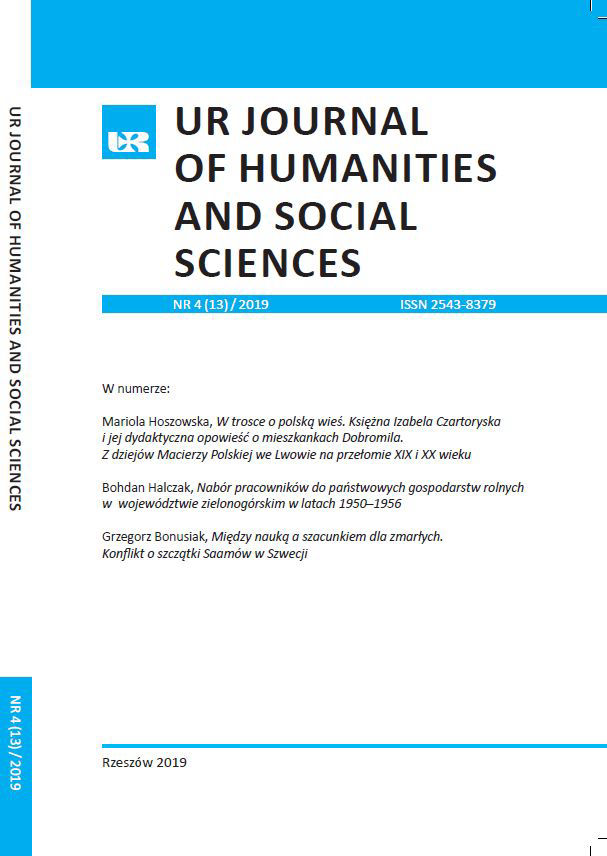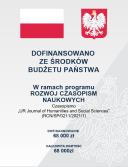Caring about the Polish countryside. Princess Izabela Czartoryska and her didactic story about the female inhabitants of Dobromil. From the history of the Polish Cradle in Lviv at the turn of the 20th century
DOI:
https://doi.org/10.15584/johass.2019.4.2Keywords:
Pilgrim in Dobromil, Izabela Czartoryska, Polish Cradle in Lviv, literature for the people, historical education at the turn of the 20th centuryAbstract
The article deals with historical education for the people at the turn of the 20th century. The starting point is the first comprehensive history of Poland for peasants by Izabela Czartoryska née Flemming. Her Pilgrim in Dobromil aimed at popularizing her native history and instilling the notion of "homeland" in the minds of peasants. A lot of space was devoted to women: rulers, noblemen, and peasants. The Duchess tried to shape a socially desirable model of a peasant woman: pious, good, neat and hardworking, fulfilling the role of wife, mother and housewife. She criticized female drunkenness, prostitution, laziness, witchcraft and other vices. The narrative was based on balancing the idealized image of rural relations with the stigmatization of what was reprehensible and in need of change. The author of the article tries to answer two questions: 1) Why, more than six decades after the publication of the Pilgrim in Dobromil, was the work still considered useful for the education of the plebeian layers of the Austrian partition and 2) How did the Lviv Foundation try to maintain its interest in the author and her creative activity calculated for the "lower" social classes? She concludes that this was due both to the shortage of new and good papers of the addressed plebeian classes and to the publishing strategy adopted by the Polish Cradle, which included the inclusion of the Polish nation through the study of the classics of national historiography and literature. Before the outbreak of the First World War, a trend was also observed in the strategy to familiarize readers with specific mental environments, which was related to the emphasis on the role of the intelligentsia in the post-partitioning history of the nation. Władysław Jankowski's study on Puławy not only presented the climate and achievements of the Czartoryski court environment, but also served to promote the ideology of national and social solidarity.Downloads
Download data is not yet available.
Downloads
Published
2019-12-15
How to Cite
Hoszowska, M. (2019). Caring about the Polish countryside. Princess Izabela Czartoryska and her didactic story about the female inhabitants of Dobromil. From the history of the Polish Cradle in Lviv at the turn of the 20th century. Journal of Humanities and Social Sciences, 13(4), 23–46. https://doi.org/10.15584/johass.2019.4.2
Issue
Section
Articles
License
Copyright (c) 2019 Wydawnictwo Uniwersytetu Rzeszowskiego

This work is licensed under a Creative Commons Attribution-NonCommercial 4.0 International License.



